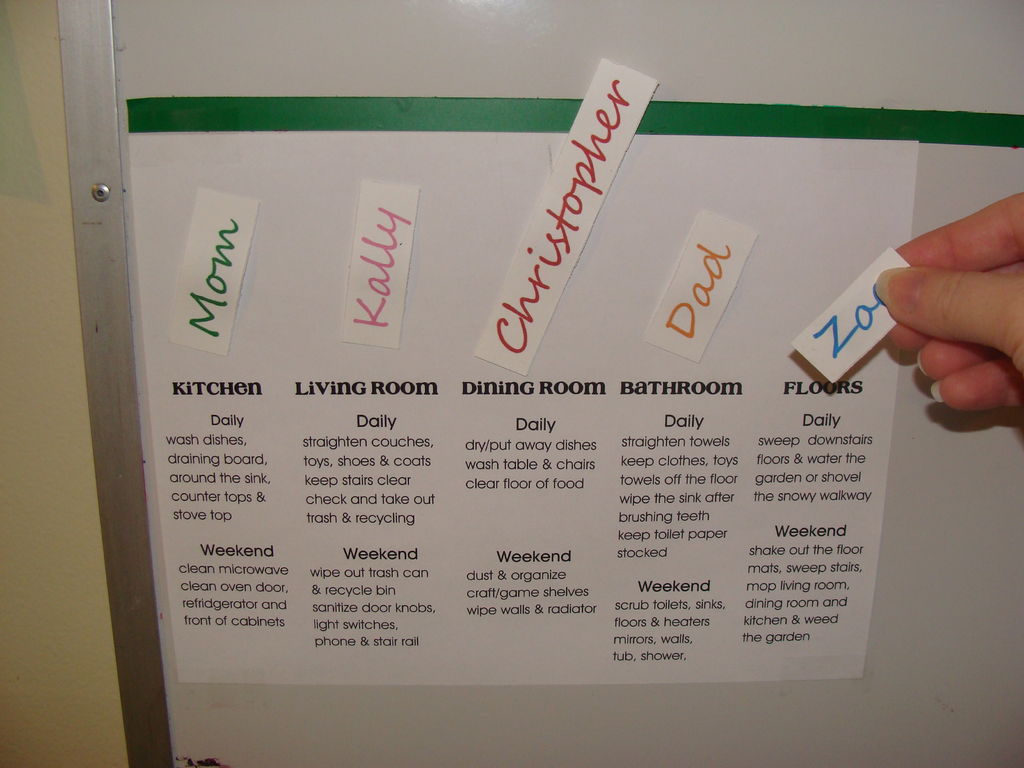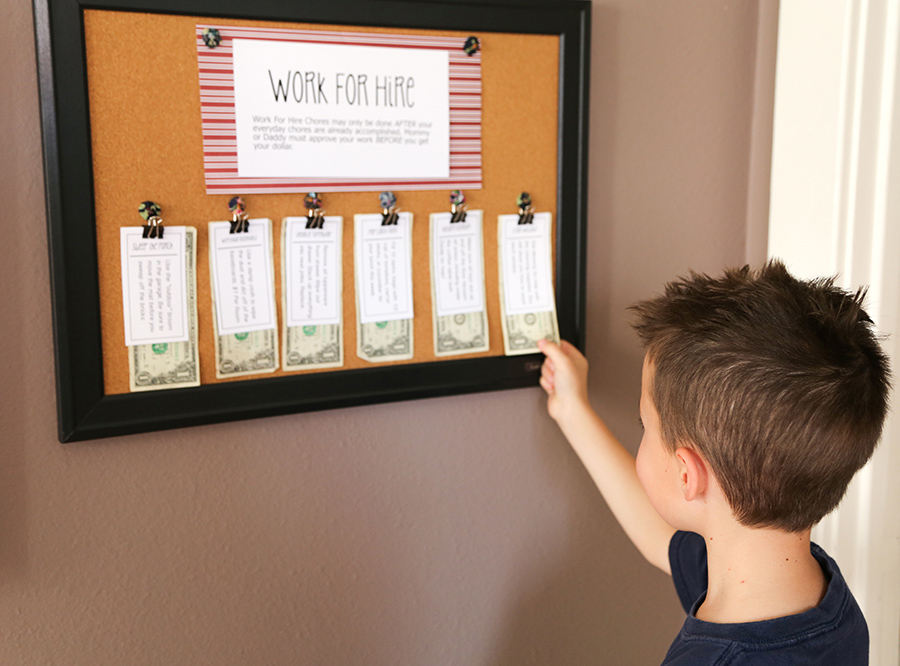4 Chore Systems For Your Kids That Might Actually Work
Most parents will tell you that if you don’t lay the ground rules early, getting kids to help with chores can be a constant battle.
At SAHM, we’re big believers in chore systems, and pocket money as well, just as long as kids actually earn it.
We’ve been talking about this a bit of late around the SAHM round table, and we have to admit, some of our mums have some genius ideas about getting their kids involved.
We thought we’d share some of the best ones!
1. The Chore Board System
The Chore Board System is a good way for parents and kids to see clearly what needs to be done and what those chores are worth. Each chore that is appropriate for kids to do unsupervised is assigned a monetary value, and written on the board along with the days of the week.
Some chores can’t be done every day, and those weekly chores usually require more effort and are therefore worth more. At the end of the weekly period, you could also make it monthly. Kids can choose to cash out their money, or put it straight into a savings account.
You’ll notice that the system also doles out .50c fines for talking back, lying, fighting and not doing as they’re told.

2. The “Get Them Early” System
Some parents find that getting children into the habit of doing chores early is the best way to ensure that they’re easy to keep onboard with these tasks in the future. With smaller children, chores are usually done with a parent supervising, and so the amount of money that is doled out is smaller, perhaps .20c.
Appropriate chores include picking up toys, helping put away clothes, picking up things off the floor before vacuuming, watering plants etc. As young children also tend not to be so forward thinking, many parents report that they find it easier to immediately give over the .20c, at which point the money goes into a savings tin (the ones that cannot be opened without a can opener). Then at certain times of the year, like Christmas or birthdays, kids can open their money tins and either bank or spend their cash!
3. The Tally System
The Tally System is a great system for older kids. Not only does it encourage a bit of healthy competition, it also gives them some basic math skills. All chores are assigned a certain number of ‘tally’ points, and each single tally is assigned a value (usually .50c).
The parents holds a book or weekly/monthly chart where the tallies are recorded, and then there are certain times, often once a month, when the tallies get paid out. This not only helps kids see that the harder the work, the more money they can make, it provides them with a chance to learn a monthly budget.
You can also encourage them to put aside some of their money once a month in a savings account to even further their financial education.
4. The “This Is Real Life” System
Some parents might think that the This Is Real Life System goes too far, but it’s one that realistic parents who want to give their children a full education in financial matters say works in the long-term. Kids are given an opportunity to do chores on a weekly basis. Some chores, such as room cleaning, are not optional. Other chores are paid out at a flat rate, depending on the chore. The method of measuring the chores completed is up to you. Fines are also recorded, as in the Chore Board System, and charged appropriately.
At the end of the week period when it’s time to count up the money, there’s the option to take it or save it. However, children must pay up any fines as well as a portion in rent and tax. Tax is charged at 10%, rent at 20% (admittedly a little lower than national averages). Parents explain to children that the tax they earn will be put away in a tax tin for them to claim back at the end of the year, while the rent will go back into the household to help their parents in paying for the home they live in, the power they use, the food they eat and so on.
In this way, kids not only get an understanding of work ethic and money saving, but also an idea of how the real financial system of the world actually works, getting rid of the entitlement that is a common problem in modern generations.




